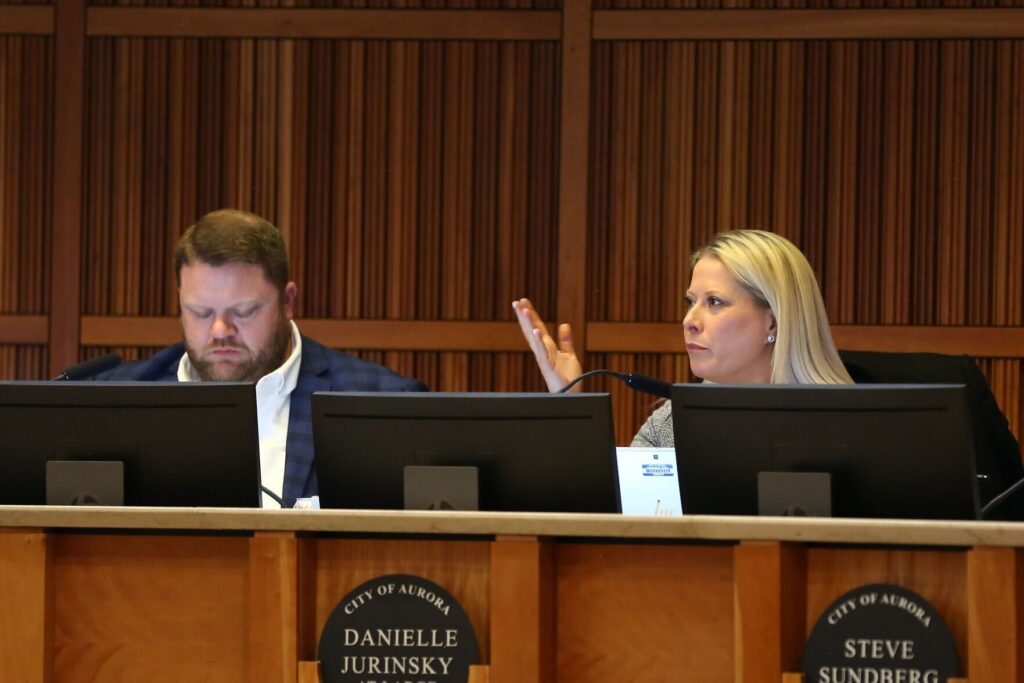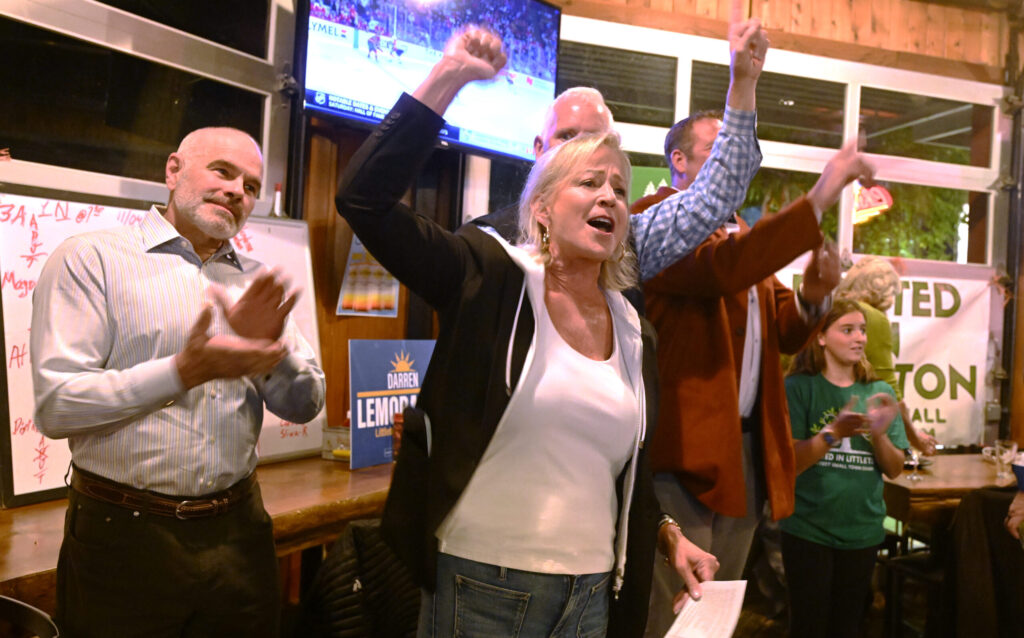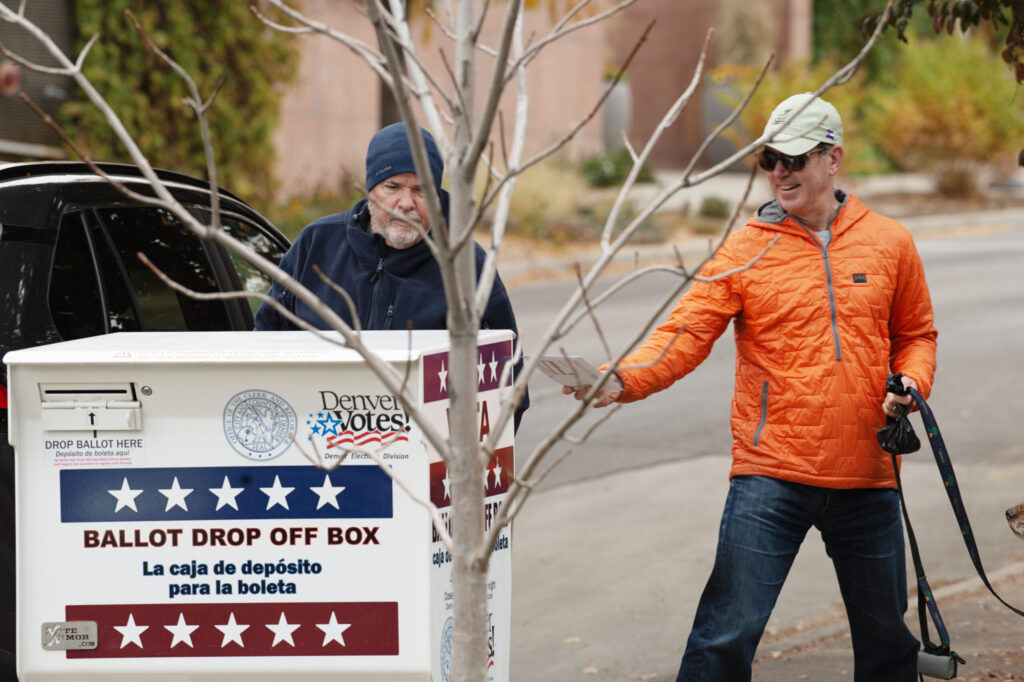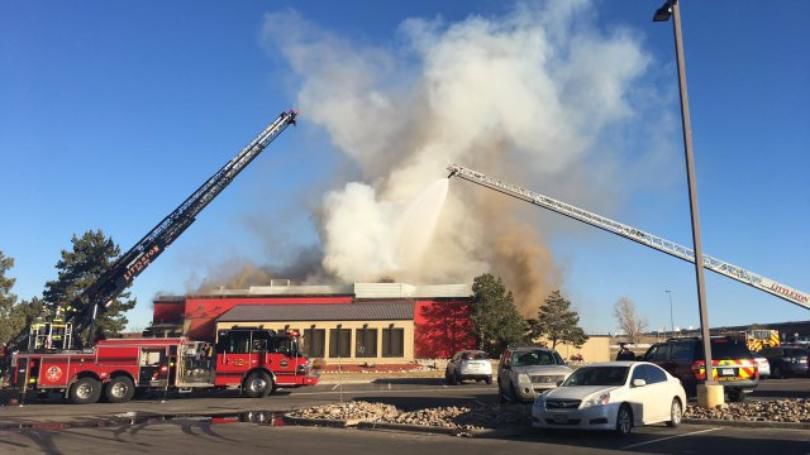Littleton anti-density measure passes, pro-density mayor wins election

Voters in Littleton passed a ballot measure against housing “density,” though they returned to office the mayor who supports the push for multiplexes and similar dwellings in neighborhoods zoned for single-family homes.
That dichotomy raised questions about how the City Council will treat housing development moving forward.
Some worried that the council will continue pushing for “density,” an idea embraced by many state and local officials as a cure to housing, homelessness and transportation woes. It’s an idea that has permeated policymaking at the state Capitol, where lawmakers are pushing for, among other policies, housing clusters close to transit.
Others said the voters have decided – and their message is clear to the new council.
The question before Littleton voters was whether to alter the city’s charter to disallow development of multiplex homes – like duplexes, triplexes and quadraplexes – in neighborhoods zoned for single-family homes, part of a larger push for “density” in metro Denver.
Littleton councilmembers in January considered an ordinance allowing duplexes, multiplexes, triplexes and accessory dwelling units within single-family zoned neighborhoods. Homeowners, in response, pushed back, resulting in the council indefinitely postponing the ordinance.
Littleton Mayor Kyle Schlachter backed the “density” ordinance.
In response, a group called Rooted in Littleton gathered enough signatures to place 3A on the ballot.
Critics of 3A argued it would hinder more affordable housing options and give that decision to homeowners. Proponents maintained the changes championed by the mayor and others on the council would alter the character of single-family home neighborhoods and undercut what homebuyers expected when they first purchased their houses.
Rooted in Littleton’s Mark Harris said Tuesday’s results showed residents want to keep the character of their neighborhoods.
“3A has risen above partisan politics and done well in the face of a democratic election,” Harris said. “I think homeowners have raised their voices here in Littleton, and they like their neighborhoods, and they want them to stay the way they are.”
Interestingly, Schlachter and 3A both won by nearly similar margins.
On Tuesday, Schlachter led by 14 points over challenger Patrick Driscoll.
Meanwhile, 3A won by 10 points – 7,918 “yes” votes to 6,519 “no” votes.
“While I did not support ballot question 3A,” Schlachter said Tuesday, “I do think our community spoke loudly tonight by passing this charter amendment.”
Driscoll, who supports 3A, said he worries that the mayor will continue challenging 3A.
“I got into this race because I heard loud and clear from Littleton residents and homeowners that they weren’t being heard by their elected officials,” Driscoll told The Denver Gazette. “That’s why they ran initiative 3A to make their voices heard and keep the elected officials from overriding their investments in their homes and neighborhoods.”
“We expect the mayor to continue to challenge the people’s policy again,” Driscoll added. “The deceptive mailers and taxpayer-funded legal challenges show that our city council is too intertwined with the governor and certain developers that they’ll keep pushing to silence neighbors and hide these decisions.”
Amanda Henderson, the projected winner of District 3, said 3A results showed what residents are looking for in the city’s housing strategy.
“I think the results of the 3A ballot measure point to a clear need to find a balance between the real need for housing options and the desire to maintain the scale and community feel we love in Littleton,” Henderson said.
In District 1, Merrill Stillwell, who is poised to win, said the city needs to listen to voters.
“It is clear that voters had concerns about housing,” he said. “City Council will need to spend time listening to voters, building trust, and working with our neighborhoods to figure out the best path forward.”
At-large councilmember-elect Joel Zink, who was vocal against 3A, said he maintains “serious concerns about (3A’s) legality and I believe it will likely result in costly litigation.”
“That being said,” he added, “the good people of Littleton have spoken, and I will respect their voice.”
DEVELOPERS, LOCAL LEADERS REACT TO 3A PASSAGE
Home developers across metro Denver kept a close eye on Littleton’s 3A.
“As a local homebuilder, I completely understand why residents care so much about keeping the character of great neighborhoods like Littleton,” developer Dave Lemnah, CEO of Lokal Homes and former president of the Home Builders Association of Metro Denver, told The Denver Gazette.
“Thoughtful, small-scale housing options — like duplexes or carriage homes — are not a threat to neighborhood character; they’re what allows it to endure for generations to come.”
Kathie Barstnar, executive director of NAIOP Colorado, the commercial real estate development association, said the decision could end up negatively affecting future homeowners.
“I understand the desire of residents to maintain the flavor of their community. I just hope it doesn’t end up resulting in the inability of the city’s aging population to find an option in which they can retire in place,” she said. “I fear that, in this instance, ‘Not in My Back Yard’ has become ‘Not in My City’.”
In neighboring Centennial, housing was also an issue raised during the city council campaigns.
“It’s interesting that an issue that felt close to ‘home’ was made clear by voters,” Centennial Mayor Stephanie Piko said. “However, it will fall on deaf ears to the state legislators that those same voters also elected. As an issue of home rule, it will be something to watch as the state brings back new legislation to strip land use decisions away from municipalities.”
Denver Gazette reporter Mark Samuelson contributed to this report.












